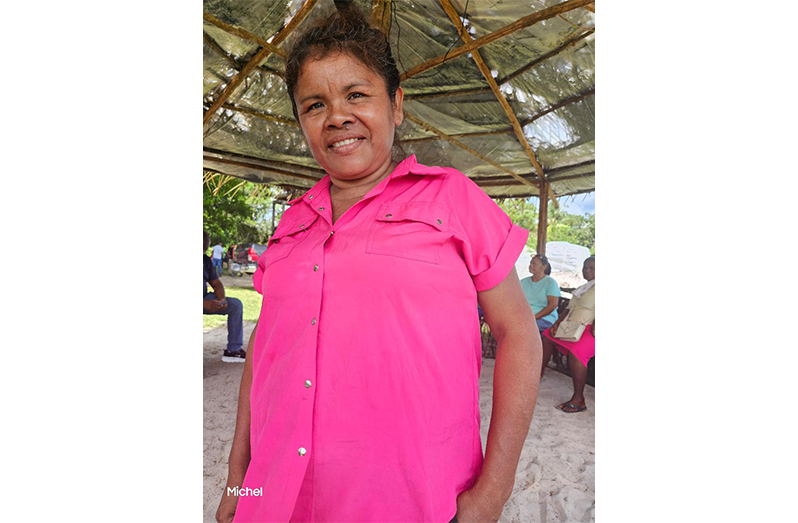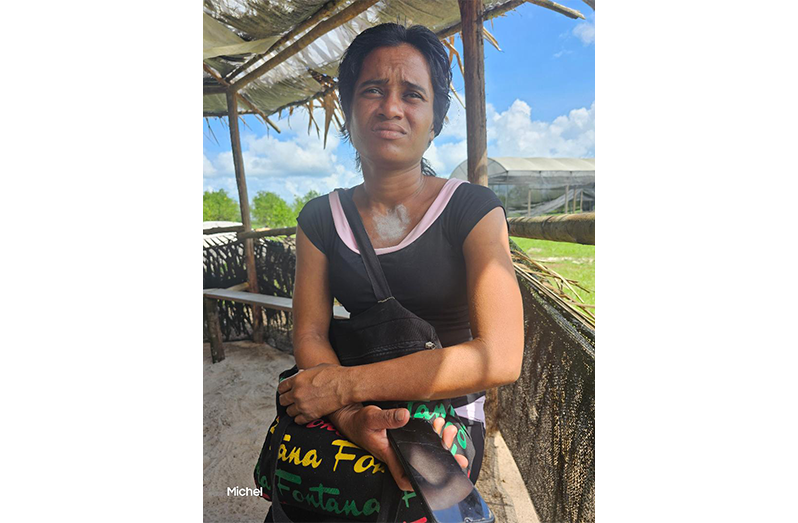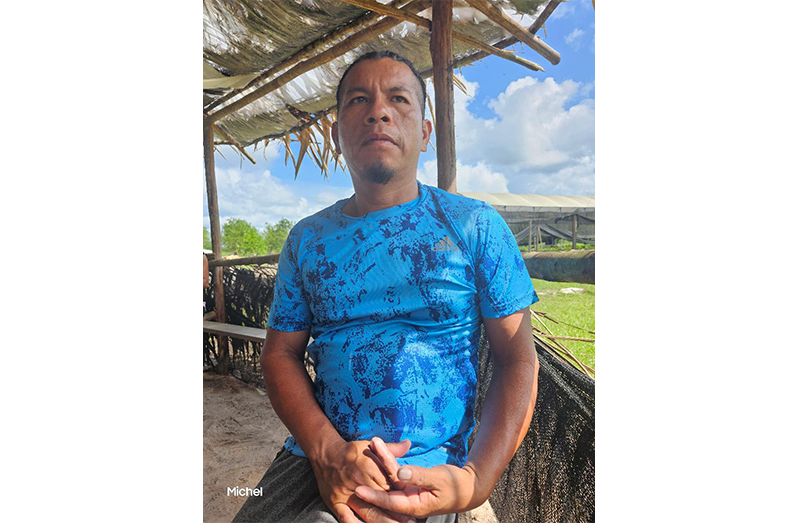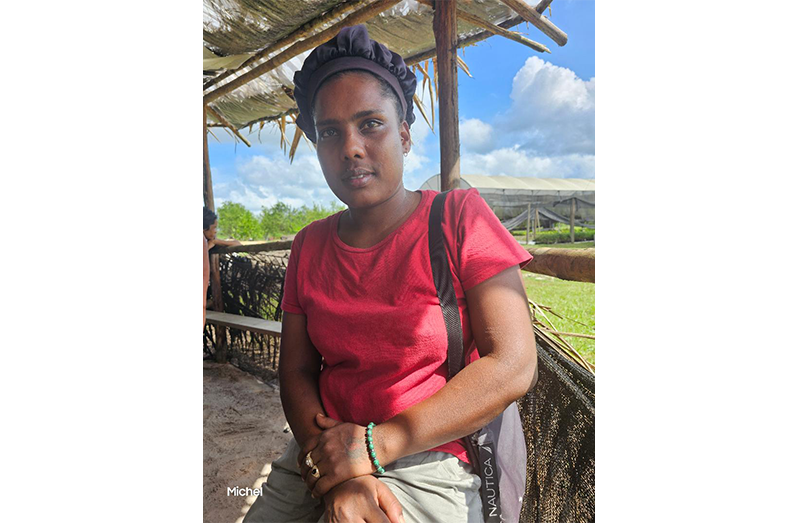-training, extension services being provided to promote healthier crops
THE National Agricultural Research and Extension Institute (NAREI) is the primary agency in Guyana responsible for agricultural research and extension services.
Some of the work it does includes improving crop productivity, diversifying agricultural production (such as non-traditional crops like fruits and vegetables), and promoting sustainable practices such as agroforestry.
The institute also supports farmers with services such as training, technical advice, and helping with pest and disease control.
Recently the Kairuni Extension Branch of NAREI held a training session for farmers who reside along the Soesdyke-Linden Highway in the hope that they return to their farms with newfound knowledge on how to manage their crops better.

Some of the participating farmers included Catherine Alfred of Tigerbone Banakari, Soesdyke-Linden Highway, who is the Secretary for the community’s farmers’ group. Members of the group recently benefitted from a dragon- fruit planting demonstration at NAREI, Kairuni Extension Office, to empower women farmers to grow their own crops in the best way possible.
The group consists of 24 farmers who have received a bulldozer and three acres of land for farming. Mostly women farmers are part of the group.
Alfred told the Guyana Chronicle that recently women farmers were trained in food preparation and catering through the Ministry of Labour’s Board of Industrial Training (BIT). The women farmers also rear meat birds and broilers to supplement their incomes.
One such beneficiary is Martha Budhan of Tigerbone Banakari Village. She related that she is rearing more than 100 creole chickens on a 24 acre-farm.

She also grows citrus (limes, oranges, lemons) and rambutan, coconuts, cassava and pepper. On her farm, she provides employment for four persons.
Budhan stated that to enhance her farming capabilities, she is in desperate need of a mist blower.
There is no potable water supply on her farm, as such, the conditions are dry and it is therefore hard to grow crops that need constant water to extend growth.
Budhan added that if the area gets potable water supply she could do so much more, but for now she has to invent ways to manage the water shortage, depending heavily on the rain.

She is a knowledgeable farmer who has been deeply interested in farming since age 16. Now 31 years old, farming is the only job she knows. This is not surprising, since she comes from a farming family which includes her father and siblings. They are all involved in large-scale farming.
Meanwhile, Matthew Williams, 45, a father of six, who is a chainsaw operator, bus driver, and ‘a jack of all trades,’ also benefitted from the training. He has a 6.5-acre plot of land on which he grows coconuts, mangoes and cashews.
He has been farming for the past 23 years and would like to plant more crops such as pears and citrus on his farm.
Williams admitted that this season, the harvest has been slower than usual, but he was able to harvest all of his pumpkins.
He would sell his produce in the city or along the Soesdyke-Linden Highway.
William said he is open to receiving farm-management training, since he intends to grow newer crops on his farm.
Grace Prescod, 31, of Silver Hill, also benefitted from the recent training. The mother of eight said she is a part of the Moblissa/Newtown farmers’ group which has 47 members. This was her first training experience.
She cultivates coconuts, soursop, dragon fruit, and pineapple on a 10-acre plot of land.
In addition to two pigs, Prescod has some goats.
Prescod related that the animals roam freely since her property is unfenced. She is hoping to garner funds to erect a chain link fence.
Previously, she reared ducks and fowls and is hoping to restart that venture soon.
She received some plants, seeds and fertiliser from NAREI and wants to be trained in shade house farming, so that she can focus on new crops and increasing her production.
Government has been focusing heavily on offering farmers financial empowerment and training, and developing a strategic plan for food security and a more competitive agricultural sector.



.jpg)









